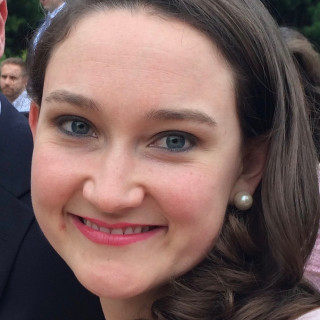
Autonomy is one of the four basic principles of health care ethics, and it is a principle that we, as physicians, are expected to apply to our patients on a daily basis. Yet physicians, especially resident physicians, are often not granted the autonomy they deserve themselves. This is a systematic oversight that comes from coercive leadership and demanding call schedules that can serve to erode confidence, deplete happiness, and ultimately cause a deterioration in the quality of patient care.
With a need to do better, here are 7 ways that residency programs and teaching faculty can begin to instill and promote autonomy in their residents.
1. Be accountable for resident education
In many residency programs, residents are expected to rely too heavily on self-teaching. They are told to “read, read, read,” which is great and necessary, but not sufficient. Many residents, fearing retaliation or shaming, are discouraged from asking questions. Too often, when attendings do teach, they choose only certain residents, creating a popularity contest where some are given more opportunities for success. Expecting doctors to teach themselves medicine is the equivalent of expecting someone to teach themself how to speak French fluently and without an accent. The optimal residency experience that leads to new physicians maximizing patient care requires that all residents are educated equally.
2. Communicate well
Residents frequently receive mixed signals from senior residents and attendings. Their chief resident might assign them to a very simple 30-minute surgery, and shortly thereafter their attending will vocally wonder why they are not scrubbing into the 6-hour surgery that was more appropriate for their level of training. Without team-wide, transparent communication in which residents are included as participants of their own educational planning, residents can slip through systemic “cracks.” They can be left feeling confused in a futile pursuit to follow directives. Seniors should also treat resident physicians respectfully, and as colleagues. Talking down to residents can lead to a Golem effect, whereby individuals perform worse when lower expectations are placed upon them.
3. Create human resources (HR) departments for resident physicians
Employees of most corporations and large companies have HR departments that support conflict resolution and work-related issues. Resident physicians do not. Often, there is nowhere residents can go to report an attending-related conflict, on-the-job harassment, or unethical behavior without fearing retaliation. Providing residents with HR resources where they could report with indemnity would do much to boost resident autonomy.
4. Teach leadership and management skills
Most resident physicians have not attended business school. They have never learned theories or techniques for managing people, let alone co-resident peers. Proper guidance and training for senior residents and attendings can provide proven techniques and tools to lead physician teams effectively.
5. Set clear expectations
Too often, residents are “thrown into the fire” of academic medicine without any communication as to what is expected of them academically, interpersonally, and professionally. Outlining the program goals and explaining how to meet these expectations, takes the guesswork out of an already-stressful experience.
6. Promote flexibility for family time, doctors’ appointments, and life events
If a resident’s grandmother dies, or he needs to take half a day off for an out-patient surgical procedure, he should not be shamed and punished. Instead, create a culture where flexibility to address these types of life events is promoted. Despite a constant effort to create a false illusion that physicians are “superhuman,” they remain, indeed, human. Robbing someone of an opportunity to mourn the death of a family member or attend to his health is not only a threat to his autonomy, but it also chips away at his humanity.
7. Institute performance-based evaluations
Judging a resident’s performance based on techniques, methods, and outcomes, rather than how much you saw her or the extra hours she put in, will do much to protect physician autonomy. At the end of the day, if patients are receiving high quality care on a consistent and continual basis, that is all that should matter.
In medicine, the fight for autonomy takes the form of passive-aggressive power games, subtly printed words, and physician suicides. Let it no longer be so. Use your power as attending physicians to empower your residents and our future physicians — that they may make educated choices according to their free will, without fear of oppression, suffering, or shame.

Whitney James, MD, MHS, practices neurosurgery in Arizona. She is a mom, wife, lover of people and lover of life. She is a Doximity Scholar and founder of Girl Neurosurgeon (link: www.girlneurosurgeon.com) — an online forum that promotes egalitarianism and equanimity in medicine and beyond.







